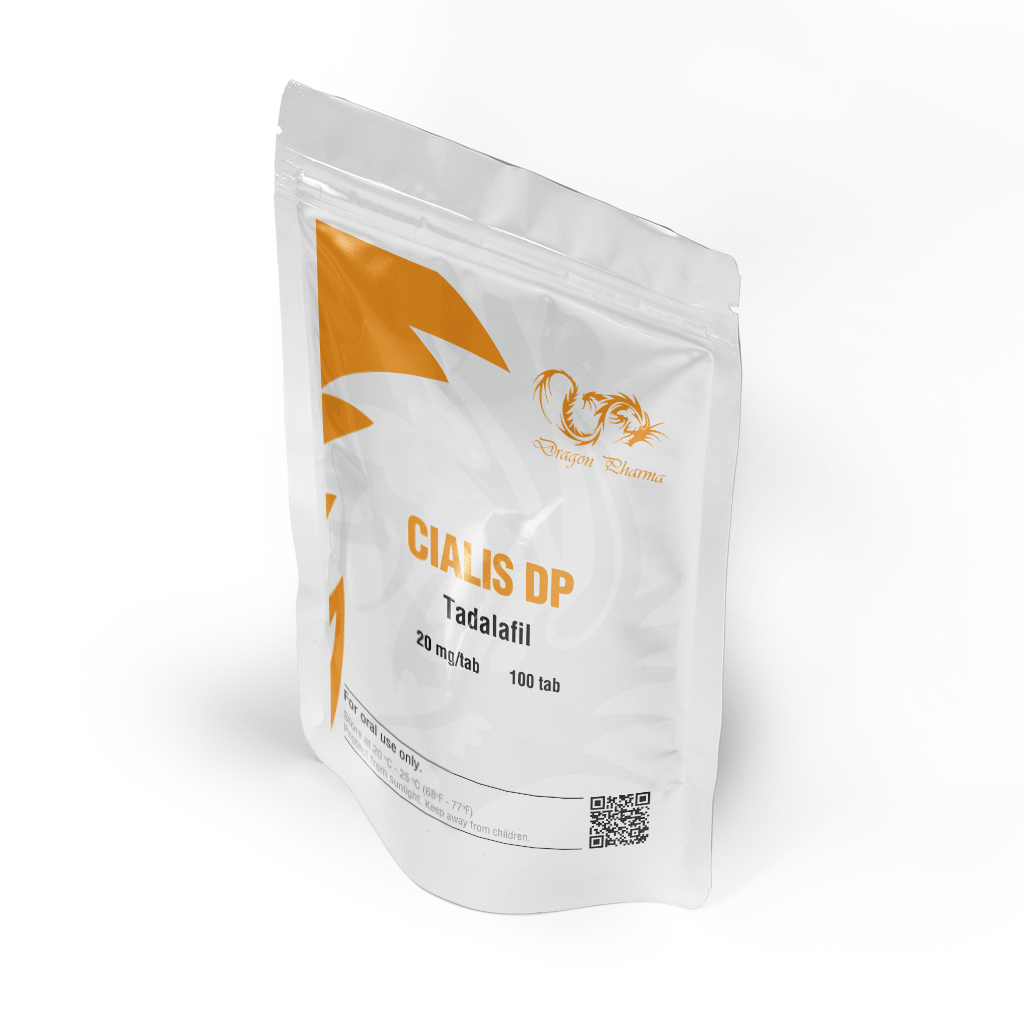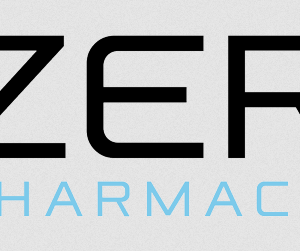CIALIS DP
$85.00 Original price was: $85.00.$80.00Current price is: $80.00.
Package: 100 tabs (20mg/tab)
Active Substance: Tadalafil
Cialis, also known by its generic name Tadalafil, is a popular oral medication produced by Dragon Pharma. This guide covers all aspects of Cialis, including its indications, contraindications, administration, medical action, precautions, side effects, overdosage, and conclusion. Cialis is widely used for treating erectile dysfunction (ED) and other related conditions, offering significant benefits for users.
Indication
Cialis is primarily indicated for the treatment of erectile dysfunction (ED) in men. Erectile dysfunction is the inability to achieve or maintain an erection sufficient for satisfactory sexual performance. Cialis helps improve erectile function by increasing blood flow to the penis, thereby facilitating the achievement and maintenance of an erection when sexually stimulated.
In addition to treating ED, Cialis is also approved for the treatment of benign prostatic hyperplasia (BPH), a condition characterized by an enlarged prostate gland that can cause urinary difficulties. By relaxing the muscles in the bladder and prostate, Cialis helps improve urine flow and reduces the symptoms of BPH.
Furthermore, Cialis is used to treat pulmonary arterial hypertension (PAH), a type of high blood pressure that affects the arteries in the lungs and the right side of the heart. In this context, Cialis helps relax the blood vessels in the lungs, allowing blood to flow more easily and reducing the workload on the heart.
Contra-indications
While Cialis offers significant benefits, it is not suitable for everyone. Several contraindications should be considered before using this drug:
- Nitrate Medications: Cialis should not be used in conjunction with nitrate medications, often prescribed for chest pain (angina), as this combination can cause a severe and potentially dangerous drop in blood pressure.
- Severe Cardiovascular Conditions: Individuals with severe cardiovascular conditions, such as recent heart attack or stroke, should avoid using Cialis without the guidance of a healthcare provider.
- Severe Liver or Kidney Disease: Those with severe liver or kidney dysfunction should not use Cialis, as the drug is metabolized by the liver and excreted by the kidneys.
- Allergy to Tadalafil or its Components: Anyone with a known allergy to Tadalafil or any of its components should not use this medication.
Patients with a history of priapism (prolonged erection) or anatomical deformation of the penis, such as Peyronie’s disease, should use Cialis with caution, as it may exacerbate these conditions.
Administration
Cialis is administered orally in tablet form. The typical starting dose for treating erectile dysfunction is 10 mg taken prior to anticipated sexual activity. Depending on efficacy and tolerability, the dose can be increased to 20 mg or decreased to 5 mg. Cialis can be taken with or without food, but it should be taken at least 30 minutes before sexual activity.
For daily use in treating ED, a lower dose of 2.5 mg to 5 mg taken once daily at the same time each day is recommended. This allows for more spontaneous sexual activity without the need to time the medication.
For the treatment of benign prostatic hyperplasia (BPH) or a combination of BPH and ED, the recommended dose is 5 mg taken once daily.
For pulmonary arterial hypertension (PAH), the dosage and frequency of administration will be determined by a healthcare provider based on the individual patient’s condition.
Medical Action
Cialis, or Tadalafil, is a phosphodiesterase type 5 (PDE5) inhibitor. PDE5 is an enzyme that breaks down cyclic guanosine monophosphate (cGMP), a molecule that helps relax smooth muscle tissue and increase blood flow. By inhibiting PDE5, Cialis increases the levels of cGMP, leading to the relaxation of smooth muscle in the blood vessels of the penis, which enhances blood flow and facilitates an erection when sexually stimulated.
In the context of benign prostatic hyperplasia (BPH), Cialis relaxes the smooth muscles in the bladder and prostate, improving urinary flow and reducing BPH symptoms.
For pulmonary arterial hypertension (PAH), the relaxation of blood vessels in the lungs reduces pulmonary blood pressure and the workload on the right side of the heart, improving exercise capacity and symptoms associated with PAH.
Precautions
Before starting Cialis, it is essential to undergo a thorough medical evaluation. This includes a complete medical history and physical examination to assess cardiovascular health, liver and kidney function, and overall health status. Regular monitoring is necessary to track progress and detect any adverse effects.
Patients should inform their healthcare provider of any pre-existing medical conditions, allergies, or medications they are taking to prevent potential drug interactions and complications. Cialis should be used cautiously in individuals with cardiovascular conditions, as sexual activity itself can pose a risk to those with heart disease.
Maintaining a healthy lifestyle, including a balanced diet and regular exercise, is crucial when using Cialis. Patients should avoid excessive alcohol consumption, as it can increase the risk of side effects such as dizziness and low blood pressure.
Side Effects
Like any potent medication, Cialis can cause side effects. Common side effects include:
- Headache: Headaches are a common complaint, often due to the increased blood flow and vasodilation effects of the drug.
- Flushing: Some users experience facial flushing, which is a warm, red appearance of the skin.
- Indigestion: Cialis can cause indigestion or an upset stomach in some individuals.
- Back Pain: Muscle aches and back pain are reported by some users, typically occurring 12 to 24 hours after taking the drug.
- Nasal Congestion: A stuffy or runny nose is another common side effect.
Less common but more serious side effects include:
- Sudden Vision Loss: In rare cases, Cialis can cause a sudden loss of vision in one or both eyes, which may be a sign of non-arteritic anterior ischemic optic neuropathy (NAION).
- Hearing Loss: Sudden hearing loss or ringing in the ears (tinnitus) has been reported in some cases.
- Priapism: An erection lasting more than four hours requires immediate medical attention to prevent long-term damage.
- Severe Allergic Reactions: Symptoms such as rash, itching, swelling, severe dizziness, and difficulty breathing require immediate medical attention.
If any severe side effects occur, it is crucial to seek medical attention immediately. Adjusting the dosage or discontinuing the use of Cialis may be necessary to mitigate adverse effects.
Overdosage
An overdose of Cialis can lead to severe health complications. Symptoms of overdose may include severe headache, dizziness, fainting, priapism (prolonged erection), and low blood pressure. In extreme cases, an overdose can cause life-threatening conditions such as heart attack or stroke.
If an overdose is suspected, it is essential to seek emergency medical assistance. Treatment typically involves supportive care and monitoring of vital signs. In some cases, medications may be administered to counteract the effects of excess Tadalafil.
Conclusion
Cialis from Dragon Pharma is a powerful oral medication that offers significant benefits for treating erectile dysfunction (ED), benign prostatic hyperplasia (BPH), and pulmonary arterial hypertension (PAH). Its ability to enhance blood flow and relax smooth muscles makes it a valuable tool in these contexts.
However, it is crucial to use Cialis responsibly and under the guidance of a healthcare provider. Regular monitoring and adherence to recommended dosages help to minimize the risk of side effects and ensure optimal results. With proper use, Cialis can be an effective solution for improving sexual function, urinary symptoms, and overall quality of life.
By understanding the indications, contraindications, administration, medical action, precautions, side effects, and potential for overdosage, users can make informed decisions about using Cialis. This comprehensive approach ensures that the benefits are maximized while minimizing the risks associated with this potent medication.
Cialis’s impressive ability to treat multiple conditions makes it a popular choice among those seeking to improve their health and well-being. As with any potent drug, responsible use and thorough understanding of its effects are essential to achieving the best possible outcomes.
Popular Brands
Popular Categories
-

Winstrol/Stanozolol10 Products
-

Turanabol/4-Chlorodehydromethyltestosterone7 Products
-

Trenbolone Mix8 Products
-

Trenbolone Enanthate9 Products
-

Trenbolone Acetate7 Products
-

Testosterone Propionate8 Products
-

Testosterone Mix14 Products
-

Testosterone Enanthate8 Products
-

Testosterone Cypionate7 Products
-

Primobolan7 Products
-

Parabolan9 Products
-

Oral Steroids48 Products
-

Nandrolone Phenylpropionate7 Products
-

Nandrolone Decanoate6 Products
-

Injectable Steroids137 Products
-

Injectable Mix11 Products
-

Drostanolone Propionate7 Products
-

Drostanolone Enanthate8 Products
-

Dianabol/Methandienone9 Products
-

Boldenone Equipoise9 Products
-

Anavar/Oxandrolone10 Products
-

Anadrol/Oxymetholone5 Products












Reviews
There are no reviews yet.